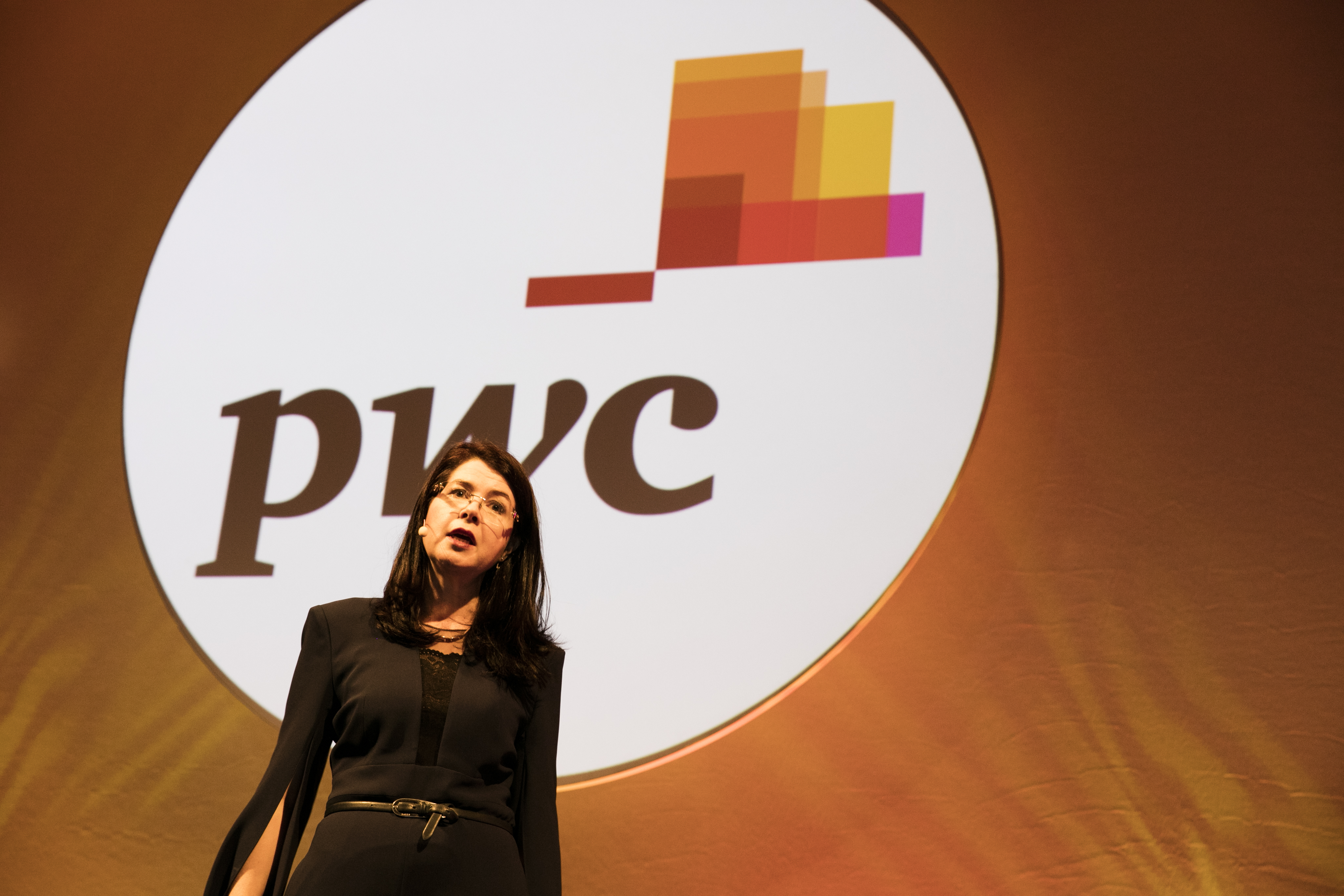Holding groups need to rethink their operating model, says PwC’s Megan Brownlow
PwC partner Megan Brownlow has told holding groups that opportunities lie within consolidation and centralisation.
Speaking at PwC’s ‘Joining the dots: the future of creativity’, Brownlow told the room of senior marketers and agency executives that holding groups and agencies need to rethink their operating models and introducing a centralised model beyond the “back office”.



An accountant telling the world about creativity; we are doomed
Megan’s not an accountant. Best check her creds before you make a comment like this.
Aside from giving an opinion from a company-owned podium, this PwC partner’s experience with creativity and marketing is what exactly?
Go check her CV out dude, she one of the most respected people in Media, being the Deputy Chair of Screen Australia and the Deputy Chair of the Media Federation of Australia, ex producer of enough rope and more. Megan has done more in two days that you would in twenty years.
Good points Claire. Bang on the money — and big challenges traditional holding groups need to solve. Hard to do in legacy businesses.
On this though. Think it would be prudent for consultancies to focus on the elephant in the room – that Xero is slowly eroding their accounting business.
Is that why they are moving outside finance and into marketing? I do wonder sometimes…
Unless Xero is doing audits or tax advice for the ASX200 companies, I don’t think it’s much of a threat to the Big 4.
The big consultancies naturally want to provide expert commentary on the shortcomings of the business models of their competitors – who to be fair are shrinking while the consultancies are growing. But they are not without their own challenges, though, and it seems reasonable that these should be considered too. I reckon those challenges are: (1) sustainable value for money to clients: significantly higher salary and overhead cost base + margin % expectations will often result in a higher cost for similar client outcomes. (2) internal disjointedness of IP and client relationship management as all these new capabilities either compete for precious revenue or work out how the hell all the parts fit together. While they say they’re on top of this and have always been good at it, that’s not always what you hear from people on the inside. And those of us that have had them as clients know that the internal workings are often far from cohesive and client value oriented. (3) one of the big players in particular, I hear, is driving one of its more creative units to be the sales force for the other, far bigger and profitable, implementation units. So let’s not assume that the consultancies are necessarily more “objective” in their recommendations. (4) the downside of clout at the c-suite level, vacated as it now tends to be by the traditional agencies, can be pretty disempowering for people in the functions and a barrier for client centricity at that level with significant discrepancies in relative power.
The consultancies should consider rethinking their operating model as well:
https://www.afr.com/news/politics/labor-calls-on-accc-to-investigate-deloitte-ey-kpmg-and-pwc-for-cartel-conduct-20180903-h14ut4
It’s a strange debate this one.
Production budgets are decreasing yet the volume of required output is increasing.
The number of clients using agencies is decreasing and the number of service providers is increasing.
Profit margins are under relentless pressure and more brands are setting up their own creative capabilities using contractors.
Personally I can’t see a long term role for large multinational holding companies at all.
Exactly how do they add value and where are they going to improve productivity to become competitive?
Strategically sound to merge agencies with conflict clients? Why are we listening to this accountant?
It is strange debate as Megan is both right and wrong.
She is correct in that the holding company model is broken (it’s practically breaking right before our eyes).
But it is difficult to see beyond this when as Tim points out above, there are arguments that the consultancy operating model is also broken (or more accurately, never got there in the first place).
For example, let’s ask Megan how the PwC Experience Centres are holding out in APAC? I hear the HK “creative” team (an acquired local agency) is down to its bare bones. China is even worse. Overall PwC is having a very tough time convincing clients to pay premium rates for non-premium services. Packaging them with more traditional consultancy services has not been a success, and a stand alone “agency” offering is a non-starter.
Exactly. Whoever you are, you’re absolutely spot on.
Hhmmm,
Well, as desperate pitch from an accounting fiorm that think they have a role in a creative world – beyond “creative accounting”. Maybe they should have run this past the PwC CMO Advisory Board, before going public (OMG what a fail!).
…and Marketers need to think beyond budgets because today measurement is key. More importantly I think we need to acknowledge marketing is having its own crisis and is in decline for all the right reasons (having been one myself). It’s the perfect time for reinvention. Behavioural economics gives marketers a new lifecycle, longevity and a new entry point into business. It leapfrogs the AIDA model and goes straight to behaviour change. Powerful and game changing.
It interesting that someone who hasn’t been a senior client,nor senior on the agency side, offers such view points. Like many consultants, lots of theory, but little view or clarity on operationalising the rhetoric.
I think increasingly clients will wise up to the fact that many of the consulting firms have little experience in ‘real’ marketing, but are instead either tech consultants or strategy consultants.
I’ve never played tennis, but have watched Wimbledon a few times. I reckon I’m a qualified coach.
I’m reasonably sure that Russel Howcroft, who heads up PwC’s CMO Advisory consulting business, has plenty of experience in ‘real’ marketing.